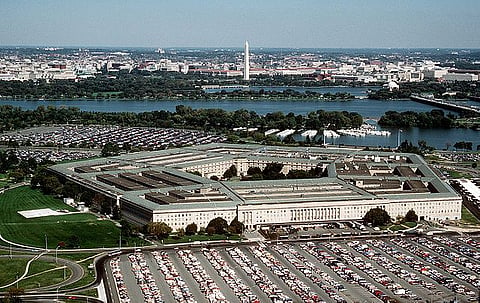

The Pentagon has implemented unprecedented new restrictions on journalists covering the U.S. military, requiring them to sign a pledge not to disclose any information, including unclassified materials without formal authorization. The guidelines, detailed in a 17 page memo distributed on September 19, 2025, threaten revocation of press credentials for non compliance and impose strict limits on reporters’ movements within the Pentagon unless escorted by officials. Defense Secretary Pete Hegseth defended the rules, stating, "The ‘press’ does not run the Pentagon, the people do. Wear a badge and follow the rules or go home".
Historical Precedents
The new policy marks the latest escalation in the Trump administration’s efforts to control media narratives, particularly around military operations. It follows Hegseth’s May 2025 decision to remove established outlets like The New York Times, NPR, and CNN from their Pentagon offices, replacing them with conservative-leaning networks such as Breitbart and One America News Network. The restrictions also come after Hegseth faced criticism for inadvertently leaking classified details about U.S. strikes in Yemen via a Signal group chat that included a journalist. The memo cites "national security" as justification but broadly defines off-limits information to include "controlled unclassified information," effectively barring journalists from reporting on leaks or unofficial sources.
Backlash
Media advocates and press freedom organizations have condemned the rules as unconstitutional. The National Press Club called the pledge a "direct assault on independent journalism," emphasizing that it undermines the public’s right to scrutinize military decisions. Seth Stern of the Freedom of the Press Foundation argued that the policy operates as "prior restraint on publication," violating core First Amendment principles by allowing the government to dictate reportable information. Thomas Evans, NPR’s editor-in-chief, vowed to collaborate with other outlets to push back, stating, "We’re big fans of the First Amendment and transparency".
Critical Media
The Pentagon’s move aligns with President Trump’s broader hostility toward the press. On September 18, Trump labeled negative coverage "illegal" and endorsed FCC Chairman Brendan Carr’s threats to revoke broadcasting licenses over critical content, such as Jimmy Kimmel’s comments on the assassination of conservative activist Charlie Kirk. Trump has also filed defamation lawsuits against major outlets like The New York Times and The Wall Street Journal, though a federal judge recently dismissed his $15 billion case against the Times as "impermissible" due to its inflammatory language. Critics, including Senator Ted Cruz, have compared Carr’s tactics to mafia intimidation, referencing a scene from Goodfellas.
Military Transparency and Public Accountability
The restrictions risk severing vital public oversight of the U.S. military. Reporters previously had relatively free access to Pentagon halls, enabling real-time reporting on operations, budgets, and policies. Under the new rules, journalists must seek escorts for most areas outside designated zones like food courts, hindering spontaneous interactions with sources. The Pentagon Press Association is reviewing the policy, but veterans like Barbara Starr (a former CNN correspondent) warn it could "limit the flow of information about the U.S. military to the public". This opacity coincides with ongoing controversial operations, such as strikes in Venezuela and Yemen, which have drawn international scrutiny.
Global and Domestic Reactions
Domestically, the rules have sparked bipartisan concern. While some Republicans support Hegseth’s stance, others like Cruz caution against government overreach into speech. Internationally, the move may embolden authoritarian regimes to justify similar suppression of press freedom. The U.S. has historically championed free media as a democratic ideal, but these restrictions align with trends in countries like Russia and China, where state-approved narratives dominate military coverage.